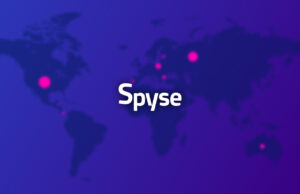How To Protect Your Identity Online So You Don’t Get Hacked

Nowadays, it’s becoming more of a challenge to protect your computer from hackers. But it has risen to another level where you must focus on protecting your identity and your tech. Identity theft is a growing problem in the digital age. It’s such a serious problem that it can lead to major losses.
No one wants to go through this experience, and while hackers and scammers are getting smarter, it feels almost impossible to feel safe online, right? Fortunately, you can protect your identity online, which goes as far as protecting your accounts from hackers. So, how can you do all of this? Keep reading on to find out how!
Use The Tor Browser
One option that many people use to keep their identity safe online is a browser similar to Tor. Tor is a free, open-source browser that allows you to browse the Internet anonymously. It encrypts your web traffic and prevents anyone from knowing what you’re doing on the internet. Tor can also help protect you from malware, identity theft, and government surveillance.
Use A Virtual Private Network Or VPN
A Virtual Private Network or VPN is a service that provides secure encrypted tunneling in and out of your internet connection. It allows you to access the internet from anywhere in the world and encrypts all your data so that nobody can intercept it. This is especially useful for people who want to protect their privacy online.
Many people use them to access geo-restricted content or websites blocked in their country. In addition, they also use them for anonymity purposes when they want to browse the internet privately. If you’re wondering about the best VPN, remember it’s all about your preference. Most VPN companies provide a wide range of services with their products, such as VPNs in nearly all countries.
Use Encrypted Email Services
Encrypted email service is a great way to protect your identity online. It is a simple and effective way to stay anonymous and secure, especially when using public Wi-Fi or other untrusted networks. It is important to remember that the email service does not encrypt the data stored on your computer or phone. It just encrypts the messages you send and receive. So, if someone gets access to your device, they can still get the data in plain text.
Try An Anonymous Search Engine
You don’t necessarily need to worry about your identity being stolen simply by looking up something on Google. Sometimes, it may help to take your security to the next level. Although they are not as popular as Google, many search engines are still considered safer and more secure. One of the most popular anonymous search engines is DuckDuckGo. It is a search engine that emphasizes privacy and does not track its users. StartPage also has a similar approach to privacy. Neither of these search engines collects personal data about you, and they have an anti-tracking system to protect your privacy.
Consider Using A Pseudonym
The rise of cybercrime has made using pseudonyms more important than ever. Pseudonyms are a great way to protect your identity online. They give you a new identity and allow you to be anonymous. If you’re posting online, such as in forums, comment sections, or some other community, that could put you at risk. Some people will even do this on social media to keep safe.
Avoid Using Your Real Identity
This ties in with using a pseudonym. The era of anonymous online content creation is now here. There are many reasons why people want to use their real names when they post online, but there are also many reasons why people choose anonymity. It can be difficult to determine where to post your real name and maybe not to post it. Social media could be a great place to post your real name, as this could give you a chance to connect with friends and family members. Even spaces like LinkedIn essentially expect you to use your real name.
Use Privacy Options
Whether it’s social media, a portfolio like Flickr, or even a forum-based community, it’s vital to have some privacy settings on high. It’s not ideal for you to have your information easily laid out, like your name, pictures, and birthdate, for others to use. It’s not a good thing to think about. Most online profiles will have strict settings.
Even on platforms like Instagram, you can set everything to private, so only the followers you choose can see your content. Facebook has similar options where you can have specific settings, such as only letting people who aren’t your friends see specific information about you, which can extend to personal posts.
Create An Incognito / Private Browsing Window
While there is some debate about whether your data and identity will even be safe when using Incognito mode, it never hurts to try, at least. An Incognito Window is a browser window that is not saved on your computer’s history, cookies, or other data.
Any websites you visit will not be saved in your browsing history, and the Incognito Window will have no cookies. In addition, it also means that Google Chrome will block third-party tracking cookies from being set. There’s still debate on which browser is safest when using private browsing mode, so it’s going to be up to you to decide.
Use Multi-Factor Authentication For Increased Security
Social engineering is dangerous, and on top of that, hackers are becoming smarter. There are plenty of stories online of businesses, celebrities, and influencers accidentally getting hacked. One great way to protect your accounts would be through 2-Factor Authentication. Multi-factor authentication is a security method that requires more than one piece of information to be provided before the user can access their account. It is the best way to protect your identity online because it provides a second layer of protection in case someone steals your password. Usually, the authentication comes from an app or a text on your phone.













 © 2024
© 2024
0 comments